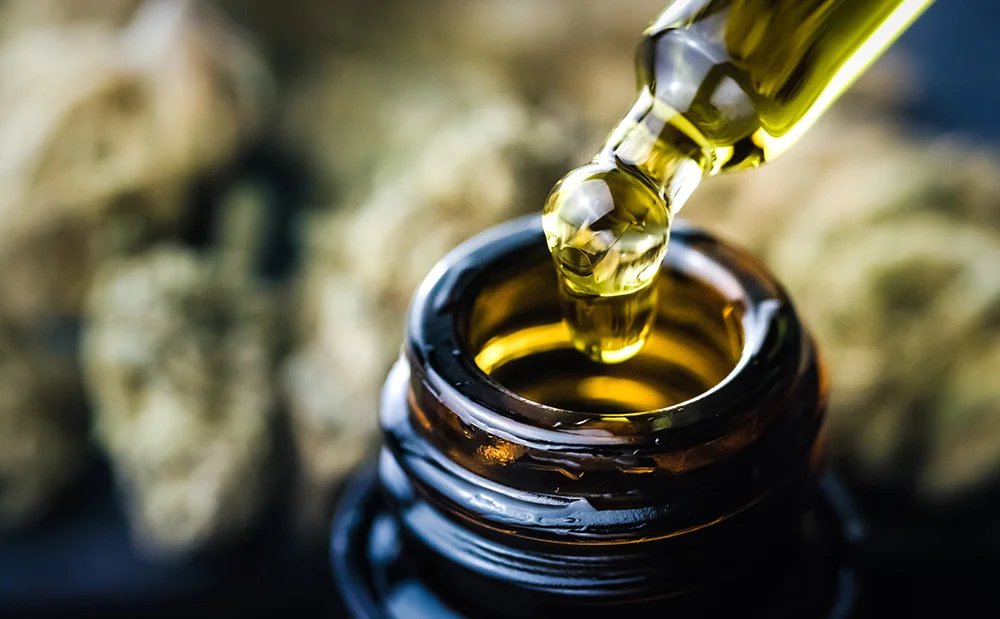
Sleep is elusive for many people, whether due to stress, pain, or underlying health issues. Sleep aids are not a new phenomenon, but in more recent years, more people have turned to the once-shunned cannabis plant because of its link to potential sleep benefits. The plant has over 100 cannabinoids — chemicals that can interact with the body’s endocannabinoid system — which helps regulate sleep, mood, appetite, and other functions.
Specifically, the compound CBD (cannabidiol) has grown in popularity, becoming well-known for its health benefits, including possible improvements in sleep quality. But a lesser-known cannabinoid, CBN (cannabinol), is a more recent focus for improving sleep, although its effects are less understood.
There is plenty of hype surrounding how CBN can improve sleep, but it’s important to differentiate between scientifically proven benefits and anecdotal claims. (1) It’s also a good idea to consider the potential of all cannabis compounds for improving sleep since some may work better for you than others.
What Is CBN?
Even though it’s less well-known as a health supplement than CBD, CBN was actually the first phytocannabinoid identified by scientists in the Cannabis sativa L. plant in the 1930s. (2) “CBN is a minor cannabinoid in the cannabis plant. If CBD and THC are the lead actors, CBN is a supporting actor,” explains Shari B. Kaplan, LCSW, Integrative Mental Health Clinician at Cannectd Wellness, who uses cannabis assisted therapy in her practice. CBN is produced when THC ages and breaks down under heat and light.
It’s less potent than THC and is non-psychoactive, meaning it does not produce the “high” associated with THC. “It is not intoxicating, so other than taking it during the day if you don’t want the munchies, this is a safe cannabinoid to add to your cannabis medicine protocol,” says Kaplan.
In terms of how it works, CBN interacts with the CB1 receptor in the brain, but not as strongly as THC does (CBN is less effective at binding to CB1 than THC is). The CB1 receptor is what’s thought to cause the mind-altering effects of cannabis, like drowsiness and sedation—aka that “baked” or couch-locked feeling associated with its use. The degradation process of THC that creates CBN is what increases sedative properties, and therein lies its potential benefits for sleep and pain management.
How CBN Differs from CBD
CBN and CBD are both cannabinoids found in the cannabis plant, but they have different properties and effects due to how they each interact with the body’s cannabinoid receptors. CBD is more widely known and used for its potential to alleviate symptoms of anxiety, insomnia, and various forms of chronic pain without causing psychoactive effects. CBN isn’t as familiar and doesn’t have as much scientific evidence to support its impact. Unlike CBD, CBN can produce mild psychoactive effects in large enough doses.
Since CBN is a byproduct of THC degradation, its psychoactive potential is generally much lower than that of THC. Just how sensitive to CBN you might be will vary, and the psychoactive threshold — if any — likely depends on several factors, including individual tolerance, if there are other cannabinoids present, and the formulation of the specific product.
CBN’s Potential for Improving Sleep
“CBN has stronger sedative properties, making it potentially more effective in promoting sleep and assisting with sleep-related issues, which is why you’d want to opt for that option if you’re looking for a sleep aid,” explains master gardener and licensed industrial hemp producer Nicole Burnette, the CEO and co-founder of Queen Hemp Company. Burnette also says CBN is akin to a natural aspirin but is estimated to be three times stronger.
There’s not much solid research on the benefits and effectiveness of CBN. However, one recent double-blind, randomized, placebo-controlled study of the safety and effects of CBN on sleep quality shows its potential as a sleep aid. (3) The study looked at the effects both with and without added CBD.
The study found that a nightly dose of 20 mg of CBN improved overall sleep disturbance and reduced the number of awakenings for participants. The researchers concluded that CBN is a potential option for improving sleep quality without causing daytime fatigue.
Interestingly, adding CBD to CBN didn’t increase its sleep-improving effects for the study’s participants. According to Burnette, more research is needed on this aspect, though, as anecdotally, combining the two can be more powerful. CBD is well known for its ability to alleviate anxiety and insomnia symptoms, but how it might improve sleep is distinct from the sedative properties of CBN.
Safety Considerations and Potential Side Effects
CBN could be worth a try if you are struggling with sleep disturbances and are an alternative to CBD. However, the potential safety concerns and risks associated with CBN are still under investigation, as research into its effects, especially long-term, is relatively sparse compared to more extensively studied cannabinoids like CBD and THC.
It’s important to speak to your healthcare provider before trying any new supplement, especially one with little research and potential psychoactive effects. Based on the placebo-controlled study, there are a few things to consider if you want to try CBN for sleep.
- Mild psychoactive effects: CBN is less psychoactive than THC, but higher doses may cause mild psychoactive effects, which could be concerning for those sensitive to psychoactive components or those who want to avoid them.
- Potential side effects: CBN, like any medication, can cause side effects. The study suggests further research into possible side effects, such as morning grogginess, which can impact daytime alertness and performance.
- Interactions with other medications: CBN may affect how other drugs work, but there is not a lot of research regarding this. People taking medications for other conditions should be cautious and speak to their doctor.
- Lack of regulation: Due to a lack of standardization and regulation, CBN products may vary in quality, purity, and concentration, which poses risks for inaccurate labeling and contaminants.
- Limited research: Limited research exists on CBN’s safety. Further studies are needed to evaluate its long-term safety, particularly among vulnerable populations.

Creating A Relaxing Bedtime Routine For Better Sleep

More Seniors Are Reaching For Cannabis to Ease Sleep Issues, But Is It Safe?

Common Natural Sleep Aids & Supplements

“Sleepy Sorbet” Is Everywhere, But Does It Work? I Tried It Out Myself
Sources
1. Garber-Paul, Elisabeth; “Why CBN Is a Psychoactive Sleep Aid Alternative,” Rolling Stone; https://www.rollingstone.com/culture/culture-news/cbn-sleep-aid-psychoactive-1031811/; July 21, 2020.
2. Corroon, Jamie; “Cannabinol and Sleep: Separating Fact from Fiction,” Cannabis and Cannabinoid Research; Vol. 6, No. 5; https://www.liebertpub.com/doi/10.1089/can.2021.0006; October 13, 2021.
3. Bonn-Miller, M. O., Feldner, M. T., Bynion, T. M., Eglit, G. M. L., Brunstetter, M., Kalaba, M., Zvorsky, I., Peters, E. N., & Hennesy, M. (2023). A double-blind, randomized, placebo-controlled study of the safety and effects of CBN with and without CBD on sleep quality.Experimental and Clinical Psychopharmacology. Advance online publication. https://doi.org/10.1037/pha0000682
Kaplan, Shari B. Author interview. April 2024.
Burnette, Nicole. Author interview. April 2024.


























